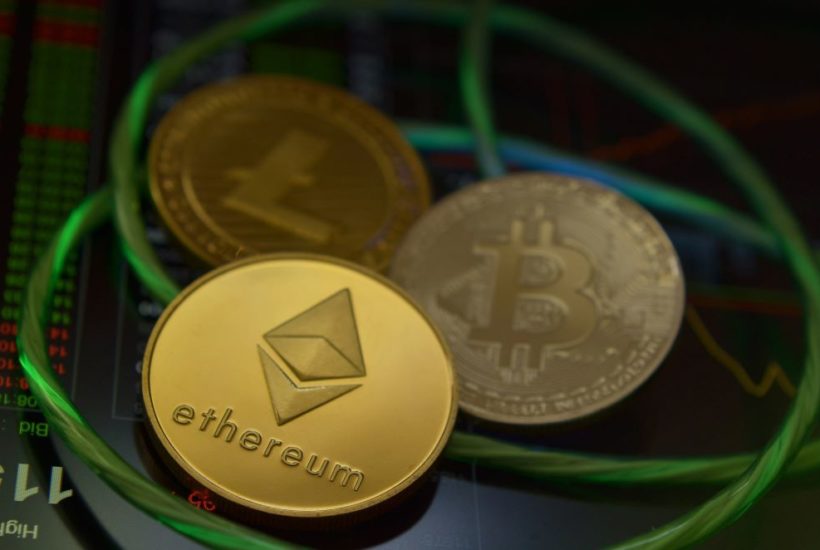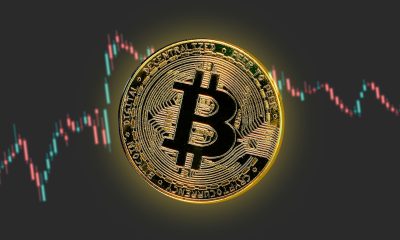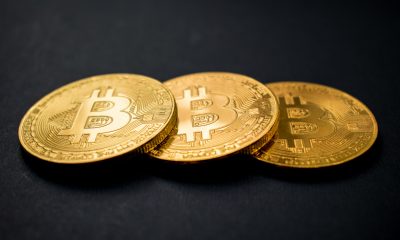Crypto
Chainlink and BitGo to offer more transparency on genuine Bitcoins
Bitcoin is becoming increasingly popular in DeFi. This is mainly due to the status of BTC and its relevance for the entire crypto industry. However, since DeFi mainly runs on the Ethereum blockchain, Bitcoin can only be used there in the form of “promissory bills” (derivatives or synthesized assets). WBTC is an ERC20 token, which was introduced in January 2019 and reflects the value of Bitcoin

To use Bitcoins in the form of derivatives on the Ethereum blockchain, tokens deposited with real BTC must be issued. This is the most popular BTC image on Ethereum – WBTC from BitGo.
However, until now there has been a lack of transparency. There was concern that more derivatives were being issued than are covered by Bitcoin. That should now be over. The BitGo crypto custody service and Chainlink have now joined forces to verify the actual stock of genuine Bitcoin.
If you want to read more about Chainlink and how it could provide more transparency, and find why Defi could not survive long without Bitcoin, download for free the Born2Invest mobile app. Our companion app brings you the latest business headlines for you to stay on top of the market.
WBTC’s Bitcoin reserve verified by Chainlink
Chainlink’s decentralized Oracle should help BitGo to gain even more trust. Currently, one has to give Bitcoin into other hands to get a BTC derivative on the Ethereum blockchain. A decentralized verification would be more than helpful at this point.
Since Bitcoin is also about “don’t trust, verify”, this mechanism does not really fit into the basic construct of BTC.
Nevertheless, the community should be convinced with additional transparency to transfer their BTC to the ETH Blockchain in order to participate in the flourishing DeFi market. Chainlink will provide WBTC users with a reliable, demand-oriented source of collateral information and an additional level of transparency for tracking WBTC reserves.
Bitcoin for Ethereum and DeFi becomes more and more important
WBTC is an ERC20 token, which was introduced in January 2019 and fully reflects the value of Bitcoin. In recent months it has taken the DeFi market by storm, with total market capitalization only recently exceeding $1 billion.
It has now eclipsed the capacity of the Lightning Network and consolidated Ethereum’s status as the leading Layer 2 solution for Bitcoin. At least for now.
Unlike Bitcoin, the WBTC is fully centralized. Its custody is managed by BitGo itself
Although BitGo is a highly respected company with an insurance fund of USD 100 million, it remains a centralized factor to rely on. So to bring some decentralization to this construct, Chainlink comes into play with its Oracles.
Proof of Reserve allows for decentralized and trust-minimized auditing. As the founder of Chainlink, Sergey Nazarov, noted, the technology makes collateral “bulletproof:
“I think the concept of “proof of reserve” is generally about proving that an underlying asset is somewhere in a certain state. And this proof is actually very fundamental to how financial systems work.”
tBTC tries a reboot
WBTC is not the only synthetic version of Bitcoin plagued by trust issues. Even its current main competitor, renBTC, has secured all genuine Bitcoin in just one address, this does not do justice to the central claim.
Last week the decentralized tBTC protocol developed by Thesis experienced a comeback after the catastrophic launch of its mainnet. The mainnet was only online for two days before it had to be shut down due to a critical error in May.
It remains to be seen if the cooperation with Chainlink and BitGo will lead to a satisfying result. After all, DeFi will not be able to survive in the long run without Bitcoin.
__
(Featured image by vjkombajn via Pixabay)
DISCLAIMER: This article was written by a third party contributor and does not reflect the opinion of Born2Invest, its management, staff or its associates. Please review our disclaimer for more information.
This article may include forward-looking statements. These forward-looking statements generally are identified by the words “believe,” “project,” “estimate,” “become,” “plan,” “will,” and similar expressions. These forward-looking statements involve known and unknown risks as well as uncertainties, including those discussed in the following cautionary statements and elsewhere in this article and on this site. Although the Company may believe that its expectations are based on reasonable assumptions, the actual results that the Company may achieve may differ materially from any forward-looking statements, which reflect the opinions of the management of the Company only as of the date hereof. Additionally, please make sure to read these important disclosures.
First published in CRYPTO MONDAY, a third-party contributor translated and adapted the article from the original. In case of discrepancy, the original will prevail.
Although we made reasonable efforts to provide accurate translations, some parts may be incorrect. Born2Invest assumes no responsibility for errors, omissions or ambiguities in the translations provided on this website. Any person or entity relying on translated content does so at their own risk. Born2Invest is not responsible for losses caused by such reliance on the accuracy or reliability of translated information. If you wish to report an error or inaccuracy in the translation, we encourage you to contact us.

-

 Business2 weeks ago
Business2 weeks agoDow Jones Breaks 50,000 as Bull Market Surges Amid Caution and Volatility
-

 Crowdfunding1 day ago
Crowdfunding1 day agoThe Youth Program at Enzian Shooting Club Is Expanding Thanks to Crowdfunding
-

 Impact Investing1 week ago
Impact Investing1 week agoEU Backs 90% Emissions Cut by 2040 and Delays ETS2 Rollout
-

 Markets4 days ago
Markets4 days agoMarkets, Jobs, and Precious Metals Show Volatility Amid Uncertainty

























